| Availability: | |
|---|---|
| Quantity: | |
| Applicable Industries | Hotels, Garment Shops, Building Material Shops, Machinery Repair Shops, Manufacturing Plant, Food & Beverage Factory, Farms, Restaurant, Home Use, Retail, Food Shop, Printing Shops, Construction works , Energy & Mining, Food & Beverage Shops, Other, Advertising Company |
| Power | Optional |
| Warranty | 1 Year |
| Width or Diameter | Size customization |
| Showroom Location | Canada, United States, Italy, Pakistan, India, Mexico, Thailand, Argentina, Colombia, Malaysia |
| Condition | New |
| Structure | Conveyor belt |
| Place of Origin | shenzhen.China |
| Machinery Test Report | Provided |
| Video outgoing-inspection | Provided |
| Marketing Type | New product 2024 |
| Warranty of core components | 1 Year |
| Core Components | Pin, Locker, Belt |
| Weight (KG) | 1 kg |
| Material | Plastic |
| Material Feature | Stable |
| Brand Name | CSTRANS |
| Voltage | 110V 220V 240V |
| Dimension(L*W*H) | Size customization |
| Material | PP.PE.PA,POM |
| Structure | Belt conveyor |
| Brand Name: | UniBelt |
| Pitch | customized |
| color | white. gray. nature. |
| Temperature | POM:-39℃ to 84℃ PP:+1℃ to 90℃ |
| Packaging Details | Packaging Details:Carton or wooden |
| Supply Ability | 2325 Meter/Meters per Month |
| Quantity (meters) | > 673 |
| Lead time (days) | 14 |
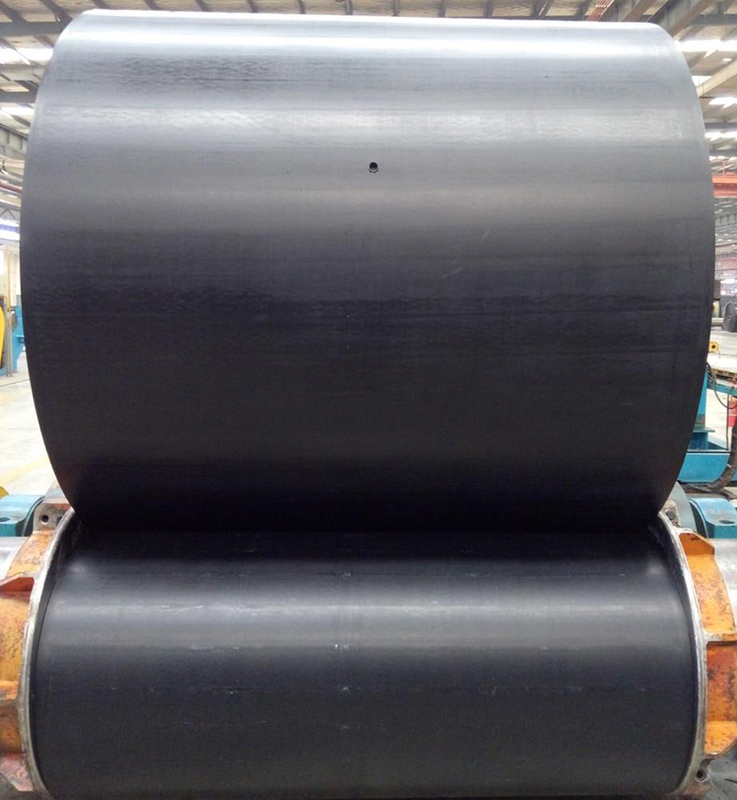
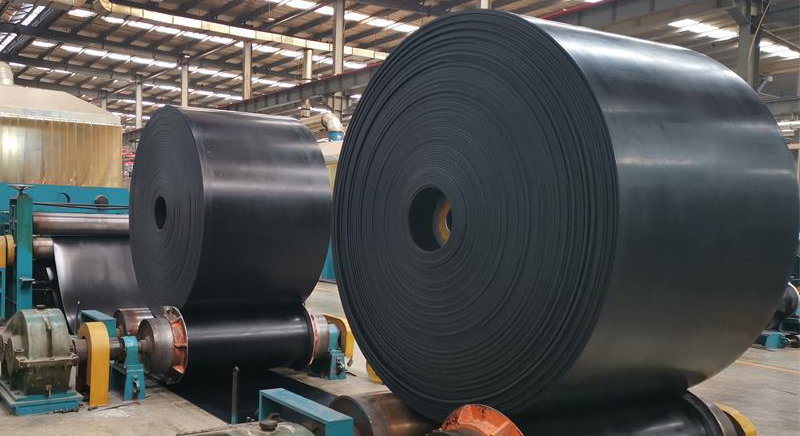

1.Are there any regulations or standards for timing belt installation safety?
Our company has many years of timing belt installation experience and expertise.
Yes, there are regulations and standards in place for conveyor belt safety. In many countries, there are specific laws and regulations that require companies to follow safety protocols and procedures when it comes to operating and maintaining conveyor belts. These regulations can cover aspects such as employee training, equipment maintenance, and emergency procedures. Additionally, there are various industry standards and guidelines that provide best practices for conveyor belt safety, such as the ASME B20.1 standard in the United States. Adhering to these regulations and standards is crucial to ensuring the safe and efficient operation of conveyor belts.
2.Can timing belt installation be used outdoors?
As one of the top timing belt installation manufacturers in China, we take this very seriously.
Yes, conveyor belts can be used outdoors as long as they are designed and constructed to withstand outdoor conditions such as weather, temperature changes, and exposure to sunlight. Outdoor conveyor belts may also require additional features such as waterproofing, UV protection, and corrosion resistance. It is important to consult with the manufacturer or supplier to ensure that the conveyor belt is suitable for outdoor use.
3.What is the average lifespan of a timing belt installation motor?
We attach importance to the innovation ability and team spirit of employees, have advanced R & D facilities and laboratories, and have a good quality management system.
The average lifespan of a conveyor belt motor can vary greatly depending on factors such as usage, maintenance, and environmental conditions. However, on average, a conveyor belt motor can last anywhere from 5 to 15 years. Regular maintenance and proper usage can help extend the lifespan of a conveyor belt motor.
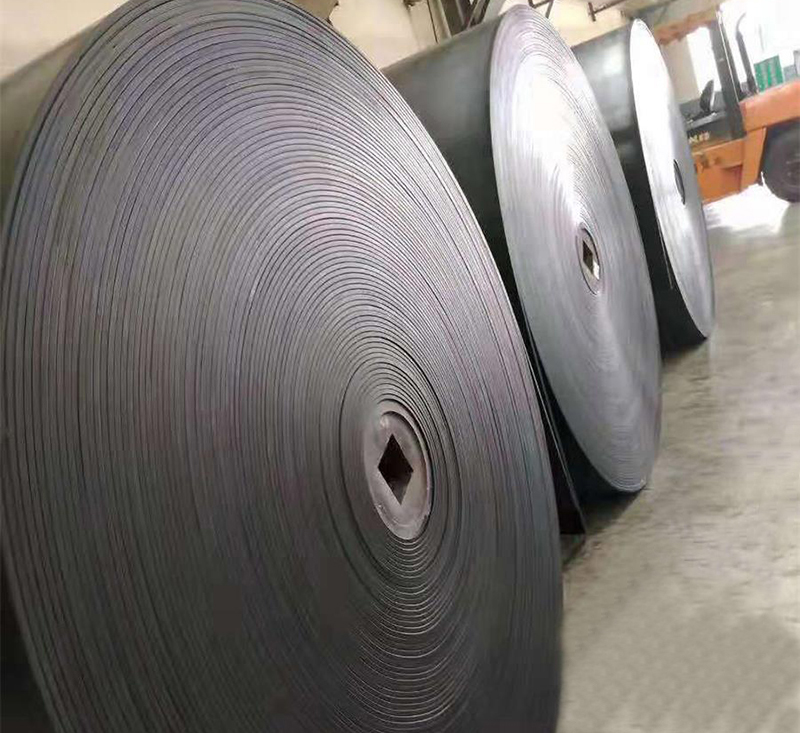
4.What safety precautions should be followed while working with timing belt installation?
timing belt installation is not a product only, but also can help you comes to money-making.
When working with conveyor belts, it is important to follow certain safety precautions to ensure the safety of yourself and those around you. First and foremost, always wear the proper personal protective equipment, such as gloves and safety glasses, to protect against potential hazards. It is also important to regularly inspect the conveyor belt for any signs of wear and tear, and address any issues immediately. When operating the conveyor belt, make sure to follow proper lockout/tagout procedures to prevent accidental start up. When loading or unloading materials onto the conveyor belt, be aware of your surroundings and stand clear from any moving parts. Additionally, be cautious of any potential pinch points and keep hands and clothing clear from them. Lastly, always be familiar with the emergency shut-off procedures and have an emergency plan in place in case of any accidents. By following these safety precautions, you can ensure a safe working environment when working with conveyor belts.
5.How do timing belt installation contribute to the efficiency of a production line?
Being one of the top timing belt installation manufacturers in China, We attach great importance to this detail.
Conveyor belts play a crucial role in the efficiency of a production line. By continuously moving materials or products from one process to another, they help to streamline the production process and eliminate the need for manual handling. This reduces the risk of errors, increases productivity, and ultimately saves time and money. In addition, conveyor belts can be designed to accommodate different types of materials and products, allowing for a more diverse and flexible production line. They also have the ability to transport materials at a consistent speed, ensuring a smooth and efficient flow of production.
6.Can timing belt installation be used for food grade applications?
Yes, conveyor belts can be used for food grade applications. However, it is important to ensure that the conveyor belt is made from materials that are safe for food contact, such as FDA-approved materials like polyurethane or PVC. The conveyor belt should also be designed and maintained to prevent contamination and ensure proper sanitation. Regular cleaning and inspection of the conveyor belt is necessary to maintain food safety standards.
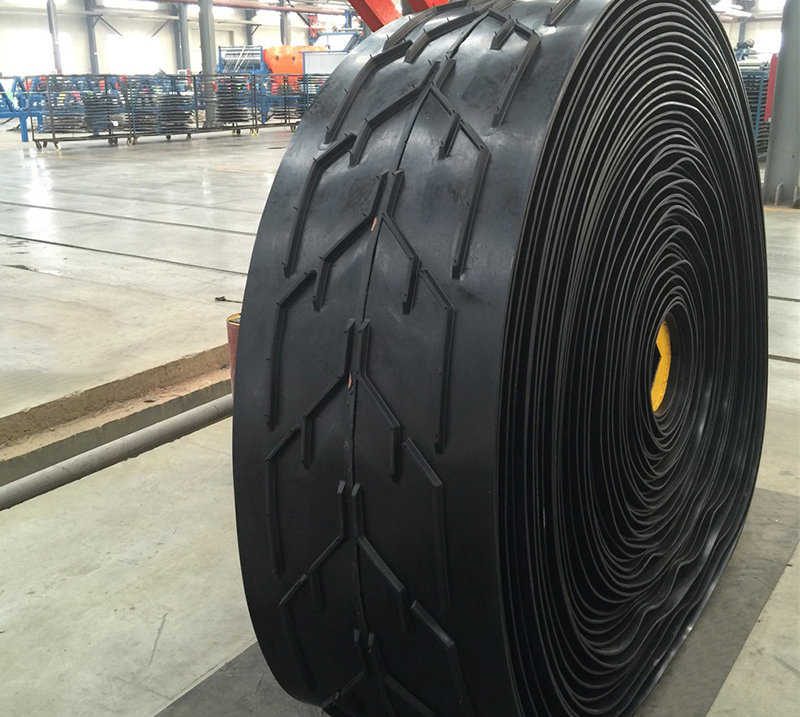
7.Can timing belt installation be used in cleanroom environments?
Yes, conveyor belts can be used in cleanroom environments. However, special considerations must be taken to ensure that the conveyor belt does not introduce contaminants into the cleanroom. This may include using materials that are non-shedding and easy to clean, as well as implementing regular maintenance and cleaning procedures. Additionally, the conveyor belt should be designed to minimize particle generation and have a smooth, continuous surface to prevent the accumulation of particles.
8.Can a timing belt installation be used for sorting and diverting products?
We pay attention to employee development and benefits, and provide a good working environment in order to improve the efficiency of employees and improve the quality management of timing belt installation products.
Yes, a conveyor belt can be used for sorting and diverting products. This can be achieved by using sensors, switches, and other mechanisms to detect and redirect products to different paths on the conveyor belt based on their size, shape, weight, or other characteristics. This process is commonly used in industries such as manufacturing, packaging, and logistics to efficiently sort and distribute products to their designated destinations.
9.What is the process for installing a new timing belt installation?
The process for installing a new conveyor belt involves several steps. First, the old belt needs to be removed from the conveyor system. This typically involves disconnecting any motors or drives that are connected to the belt and loosening or removing any fasteners or lacing that hold the belt in place. Then, the new belt can be unrolled and placed on the conveyor, making sure it is properly aligned and centered. Depending on the type of conveyor, the belt may need to be spliced or connected together using special tools or adhesive. The final step is to tension the belt to the appropriate level to ensure smooth operation. It is important to follow manufacturer guidelines and safety protocols throughout the installation process to ensure the conveyor belt is installed correctly and operates safely.

10.What is the purpose of a timing belt installation tensioner?
We are a professional timing belt installation company dedicated to providing high quality products and services.
A conveyor belt tensioner is a mechanical device used to adjust and maintain the tension of a conveyor belt. It works by applying tension to the belt, keeping it taut and allowing it to smoothly and efficiently move along the conveyor system. The purpose of a conveyor belt tensioner is to ensure that the belt remains in proper alignment and does not slip or become loose, which can cause disruptions in the production process. By maintaining the proper tension, a conveyor belt tensioner helps to increase the lifespan of the belt and improve the overall functioning of the conveyor system. It is an essential component in industrial settings such as manufacturing plants, airports, and warehouses, where conveyor belts are used to transport goods and materials.
11.Can timing belt installation be used for vertical transport?
We have flexible production capacity. Whether you are large orders or small orders, you can produce and release goods in a timely manner to meet customer needs.
Yes, conveyor belts can be used for vertical transport. This type of conveyor system is known as an inclined or vertical conveyor. It uses a series of belts or chains to move materials up or down an incline or vertical path. These types of conveyors are commonly used in warehouses, distribution centers, and manufacturing facilities to move products between different levels of a building. They are also used in mining and construction industries for transporting materials to different levels of a site.
12.Can timing belt installation be utilized for inclined transport?
As one of the timing belt installation market leaders, we are known for innovation and reliability.
Yes, conveyor belts can be utilized for inclined transport. In fact, many conveyor systems are designed specifically for inclined transport, such as incline conveyors or cleated belt conveyors. These types of conveyors use specialized belts with cleats or ribs to prevent items from slipping or rolling back down the incline. They are commonly used in industries such as agriculture, mining, and manufacturing to transport materials up or down slopes or inclines.
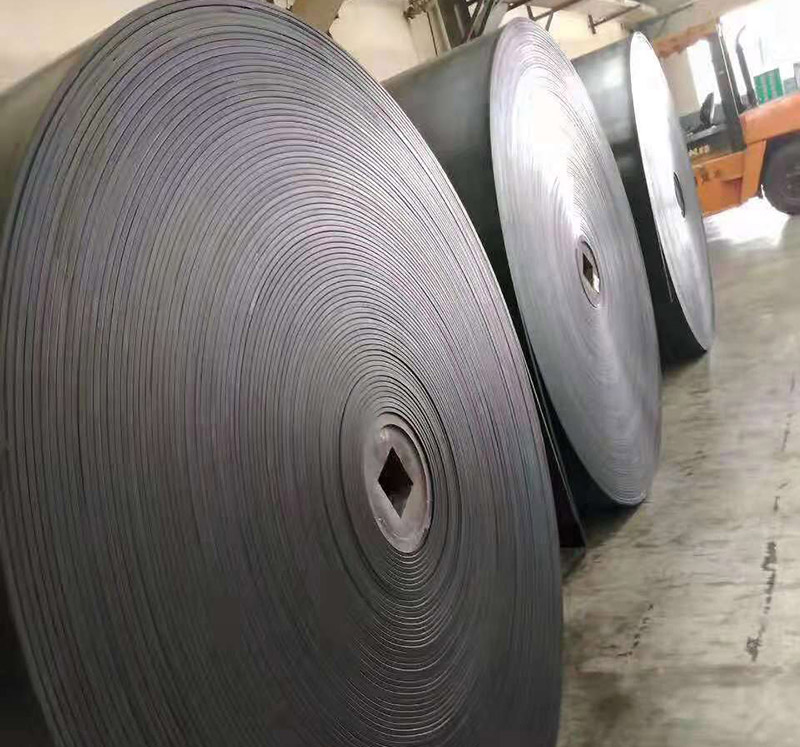
13.What is the role of software in optimizing timing belt installation systems?
Software plays a critical role in optimizing conveyor belt systems. It is used to control and monitor the movement of materials, ensuring smooth and efficient operation. With the help of software, different parameters such as speed, direction, and temperature can be adjusted to achieve the most optimal transportation process. In addition, software can analyze data, identify potential issues, and provide real-time feedback, allowing for preventive maintenance and reducing downtime. It also enables remote monitoring and management of conveyor belt systems, increasing productivity and reducing human errors. Therefore, software not only improves the performance and reliability of conveyor belt systems but also contributes to cost-effectiveness and overall operational efficiency.
14.How do you prevent wear and tear on a timing belt installation?
We maintain a certain amount of R&D investment every year and continuously improve operational efficiency to provide better services to our cooperative customers.
In order to prevent wear and tear on a conveyor belt, there are several steps that can be taken. Firstly, regular inspection and maintenance of the belt should be conducted to catch any issues before they become more serious. This includes checking for cracks, tears, and damage to the belt as well as ensuring proper tension and alignment. Secondly, using proper loading and unloading techniques can prevent excessive strain and damage to the belt. Additionally, selecting and using the appropriate conveyor belt for the specific application can improve durability and reduce wear and tear. Finally, implementing a regular cleaning schedule and making sure that any debris or contaminants are removed from the belt can also help to extend its lifespan and prevent damage. By taking these measures, the wear and tear on a conveyor belt can be reduced, resulting in smoother operations and better overall performance.
15.What are some common types of timing belt installation accidents?
We have advanced production equipment and technology to meet the needs of customers, and can provide customers with high quality, low priced timing belt installation products.
Conveyor belts are used in various industries to efficiently transport materials and goods. Despite their numerous benefits, conveyor belts can also pose safety hazards, leading to accidents and injuries. Some common types of conveyor belt accidents include worker entanglement, material spillage, and trapped fingers or limbs. These accidents are often caused by loose clothing or hair getting caught in the moving parts of the conveyor, improper handling or transferring of materials, or failure to follow safety protocols. Additionally, poorly maintained or faulty equipment can also lead to accidents, such as sudden belt dislodgement or breakage. It is important for companies to prioritize proper training, equipment maintenance, and safety measures to prevent and minimize these types of accidents.

Tag:chain driven roller conveyor,v belt 3 8,3 16 wide v belt,drag chain conveyors,121 5765 v belt,temporary v belt
| Applicable Industries | Hotels, Garment Shops, Building Material Shops, Machinery Repair Shops, Manufacturing Plant, Food & Beverage Factory, Farms, Restaurant, Home Use, Retail, Food Shop, Printing Shops, Construction works , Energy & Mining, Food & Beverage Shops, Other, Advertising Company |
| Power | Optional |
| Warranty | 1 Year |
| Width or Diameter | Size customization |
| Showroom Location | Canada, United States, Italy, Pakistan, India, Mexico, Thailand, Argentina, Colombia, Malaysia |
| Condition | New |
| Structure | Conveyor belt |
| Place of Origin | shenzhen.China |
| Machinery Test Report | Provided |
| Video outgoing-inspection | Provided |
| Marketing Type | New product 2024 |
| Warranty of core components | 1 Year |
| Core Components | Pin, Locker, Belt |
| Weight (KG) | 1 kg |
| Material | Plastic |
| Material Feature | Stable |
| Brand Name | CSTRANS |
| Voltage | 110V 220V 240V |
| Dimension(L*W*H) | Size customization |
| Material | PP.PE.PA,POM |
| Structure | Belt conveyor |
| Brand Name: | UniBelt |
| Pitch | customized |
| color | white. gray. nature. |
| Temperature | POM:-39℃ to 84℃ PP:+1℃ to 90℃ |
| Packaging Details | Packaging Details:Carton or wooden |
| Supply Ability | 2325 Meter/Meters per Month |
| Quantity (meters) | > 673 |
| Lead time (days) | 14 |



1.Are there any regulations or standards for timing belt installation safety?
Our company has many years of timing belt installation experience and expertise.
Yes, there are regulations and standards in place for conveyor belt safety. In many countries, there are specific laws and regulations that require companies to follow safety protocols and procedures when it comes to operating and maintaining conveyor belts. These regulations can cover aspects such as employee training, equipment maintenance, and emergency procedures. Additionally, there are various industry standards and guidelines that provide best practices for conveyor belt safety, such as the ASME B20.1 standard in the United States. Adhering to these regulations and standards is crucial to ensuring the safe and efficient operation of conveyor belts.
2.Can timing belt installation be used outdoors?
As one of the top timing belt installation manufacturers in China, we take this very seriously.
Yes, conveyor belts can be used outdoors as long as they are designed and constructed to withstand outdoor conditions such as weather, temperature changes, and exposure to sunlight. Outdoor conveyor belts may also require additional features such as waterproofing, UV protection, and corrosion resistance. It is important to consult with the manufacturer or supplier to ensure that the conveyor belt is suitable for outdoor use.
3.What is the average lifespan of a timing belt installation motor?
We attach importance to the innovation ability and team spirit of employees, have advanced R & D facilities and laboratories, and have a good quality management system.
The average lifespan of a conveyor belt motor can vary greatly depending on factors such as usage, maintenance, and environmental conditions. However, on average, a conveyor belt motor can last anywhere from 5 to 15 years. Regular maintenance and proper usage can help extend the lifespan of a conveyor belt motor.

4.What safety precautions should be followed while working with timing belt installation?
timing belt installation is not a product only, but also can help you comes to money-making.
When working with conveyor belts, it is important to follow certain safety precautions to ensure the safety of yourself and those around you. First and foremost, always wear the proper personal protective equipment, such as gloves and safety glasses, to protect against potential hazards. It is also important to regularly inspect the conveyor belt for any signs of wear and tear, and address any issues immediately. When operating the conveyor belt, make sure to follow proper lockout/tagout procedures to prevent accidental start up. When loading or unloading materials onto the conveyor belt, be aware of your surroundings and stand clear from any moving parts. Additionally, be cautious of any potential pinch points and keep hands and clothing clear from them. Lastly, always be familiar with the emergency shut-off procedures and have an emergency plan in place in case of any accidents. By following these safety precautions, you can ensure a safe working environment when working with conveyor belts.
5.How do timing belt installation contribute to the efficiency of a production line?
Being one of the top timing belt installation manufacturers in China, We attach great importance to this detail.
Conveyor belts play a crucial role in the efficiency of a production line. By continuously moving materials or products from one process to another, they help to streamline the production process and eliminate the need for manual handling. This reduces the risk of errors, increases productivity, and ultimately saves time and money. In addition, conveyor belts can be designed to accommodate different types of materials and products, allowing for a more diverse and flexible production line. They also have the ability to transport materials at a consistent speed, ensuring a smooth and efficient flow of production.
6.Can timing belt installation be used for food grade applications?
Yes, conveyor belts can be used for food grade applications. However, it is important to ensure that the conveyor belt is made from materials that are safe for food contact, such as FDA-approved materials like polyurethane or PVC. The conveyor belt should also be designed and maintained to prevent contamination and ensure proper sanitation. Regular cleaning and inspection of the conveyor belt is necessary to maintain food safety standards.

7.Can timing belt installation be used in cleanroom environments?
Yes, conveyor belts can be used in cleanroom environments. However, special considerations must be taken to ensure that the conveyor belt does not introduce contaminants into the cleanroom. This may include using materials that are non-shedding and easy to clean, as well as implementing regular maintenance and cleaning procedures. Additionally, the conveyor belt should be designed to minimize particle generation and have a smooth, continuous surface to prevent the accumulation of particles.
8.Can a timing belt installation be used for sorting and diverting products?
We pay attention to employee development and benefits, and provide a good working environment in order to improve the efficiency of employees and improve the quality management of timing belt installation products.
Yes, a conveyor belt can be used for sorting and diverting products. This can be achieved by using sensors, switches, and other mechanisms to detect and redirect products to different paths on the conveyor belt based on their size, shape, weight, or other characteristics. This process is commonly used in industries such as manufacturing, packaging, and logistics to efficiently sort and distribute products to their designated destinations.
9.What is the process for installing a new timing belt installation?
The process for installing a new conveyor belt involves several steps. First, the old belt needs to be removed from the conveyor system. This typically involves disconnecting any motors or drives that are connected to the belt and loosening or removing any fasteners or lacing that hold the belt in place. Then, the new belt can be unrolled and placed on the conveyor, making sure it is properly aligned and centered. Depending on the type of conveyor, the belt may need to be spliced or connected together using special tools or adhesive. The final step is to tension the belt to the appropriate level to ensure smooth operation. It is important to follow manufacturer guidelines and safety protocols throughout the installation process to ensure the conveyor belt is installed correctly and operates safely.

10.What is the purpose of a timing belt installation tensioner?
We are a professional timing belt installation company dedicated to providing high quality products and services.
A conveyor belt tensioner is a mechanical device used to adjust and maintain the tension of a conveyor belt. It works by applying tension to the belt, keeping it taut and allowing it to smoothly and efficiently move along the conveyor system. The purpose of a conveyor belt tensioner is to ensure that the belt remains in proper alignment and does not slip or become loose, which can cause disruptions in the production process. By maintaining the proper tension, a conveyor belt tensioner helps to increase the lifespan of the belt and improve the overall functioning of the conveyor system. It is an essential component in industrial settings such as manufacturing plants, airports, and warehouses, where conveyor belts are used to transport goods and materials.
11.Can timing belt installation be used for vertical transport?
We have flexible production capacity. Whether you are large orders or small orders, you can produce and release goods in a timely manner to meet customer needs.
Yes, conveyor belts can be used for vertical transport. This type of conveyor system is known as an inclined or vertical conveyor. It uses a series of belts or chains to move materials up or down an incline or vertical path. These types of conveyors are commonly used in warehouses, distribution centers, and manufacturing facilities to move products between different levels of a building. They are also used in mining and construction industries for transporting materials to different levels of a site.
12.Can timing belt installation be utilized for inclined transport?
As one of the timing belt installation market leaders, we are known for innovation and reliability.
Yes, conveyor belts can be utilized for inclined transport. In fact, many conveyor systems are designed specifically for inclined transport, such as incline conveyors or cleated belt conveyors. These types of conveyors use specialized belts with cleats or ribs to prevent items from slipping or rolling back down the incline. They are commonly used in industries such as agriculture, mining, and manufacturing to transport materials up or down slopes or inclines.

13.What is the role of software in optimizing timing belt installation systems?
Software plays a critical role in optimizing conveyor belt systems. It is used to control and monitor the movement of materials, ensuring smooth and efficient operation. With the help of software, different parameters such as speed, direction, and temperature can be adjusted to achieve the most optimal transportation process. In addition, software can analyze data, identify potential issues, and provide real-time feedback, allowing for preventive maintenance and reducing downtime. It also enables remote monitoring and management of conveyor belt systems, increasing productivity and reducing human errors. Therefore, software not only improves the performance and reliability of conveyor belt systems but also contributes to cost-effectiveness and overall operational efficiency.
14.How do you prevent wear and tear on a timing belt installation?
We maintain a certain amount of R&D investment every year and continuously improve operational efficiency to provide better services to our cooperative customers.
In order to prevent wear and tear on a conveyor belt, there are several steps that can be taken. Firstly, regular inspection and maintenance of the belt should be conducted to catch any issues before they become more serious. This includes checking for cracks, tears, and damage to the belt as well as ensuring proper tension and alignment. Secondly, using proper loading and unloading techniques can prevent excessive strain and damage to the belt. Additionally, selecting and using the appropriate conveyor belt for the specific application can improve durability and reduce wear and tear. Finally, implementing a regular cleaning schedule and making sure that any debris or contaminants are removed from the belt can also help to extend its lifespan and prevent damage. By taking these measures, the wear and tear on a conveyor belt can be reduced, resulting in smoother operations and better overall performance.
15.What are some common types of timing belt installation accidents?
We have advanced production equipment and technology to meet the needs of customers, and can provide customers with high quality, low priced timing belt installation products.
Conveyor belts are used in various industries to efficiently transport materials and goods. Despite their numerous benefits, conveyor belts can also pose safety hazards, leading to accidents and injuries. Some common types of conveyor belt accidents include worker entanglement, material spillage, and trapped fingers or limbs. These accidents are often caused by loose clothing or hair getting caught in the moving parts of the conveyor, improper handling or transferring of materials, or failure to follow safety protocols. Additionally, poorly maintained or faulty equipment can also lead to accidents, such as sudden belt dislodgement or breakage. It is important for companies to prioritize proper training, equipment maintenance, and safety measures to prevent and minimize these types of accidents.

Tag:chain driven roller conveyor,v belt 3 8,3 16 wide v belt,drag chain conveyors,121 5765 v belt,temporary v belt

